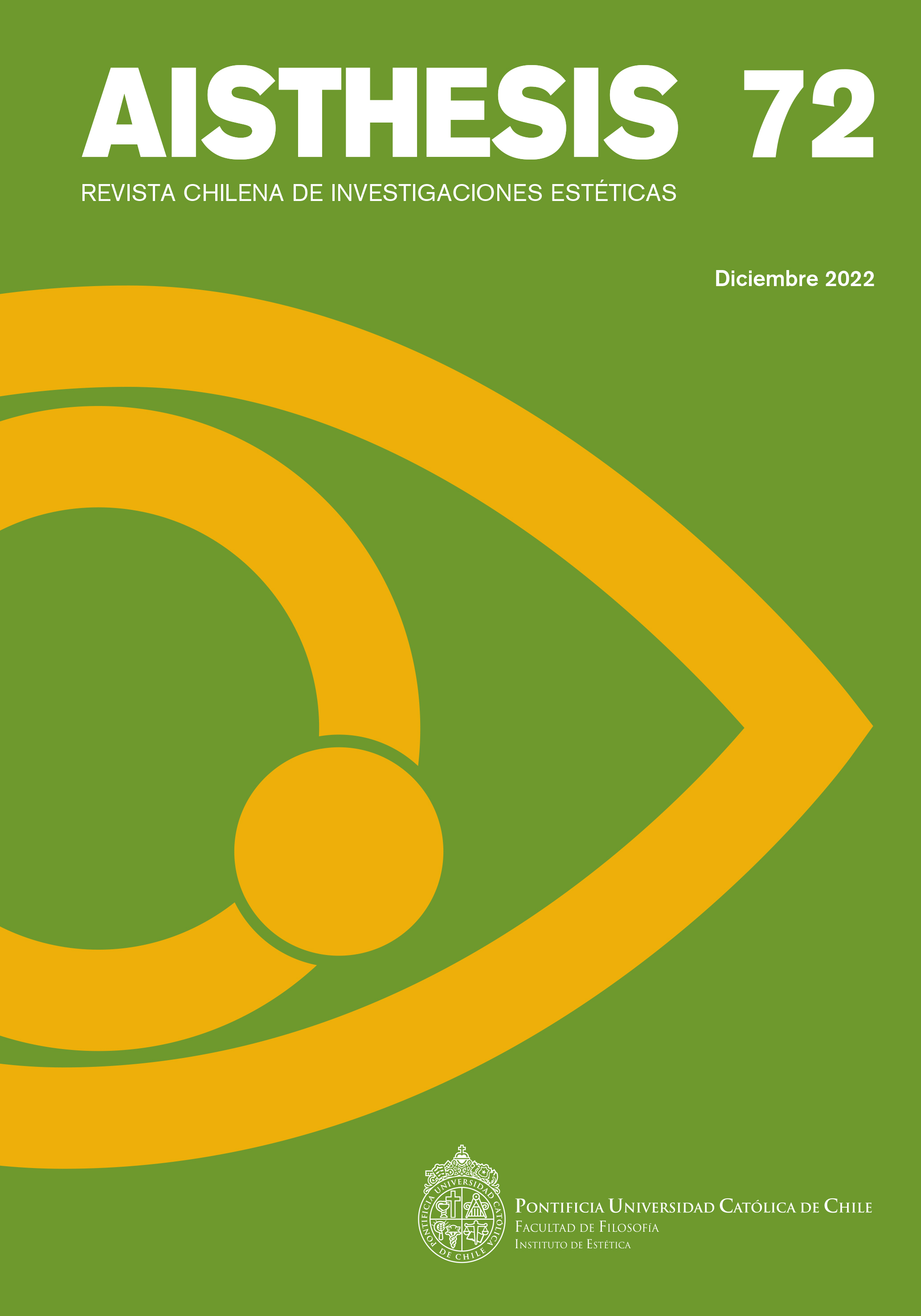Stifters Dinge or Opera as a Tribunal
Main Article Content
Abstract
Starting with Stifters Dinge by the German composer Heiner Goebbels, and considering in particular its staging at the Teatro Colón in Buenos Aires in February 2016, we will reflect on experimental opera as a possible framework for the interrogation of “the Human” as a founding myth of modernity. We will look at how experimental opera erodes, then, Western metaphysics and the binaries that structure it: nature and culture, subject and object, agency and inertia, action and rest, and even life and death. In this way, we will analyze how Goebbel’s work destabilizes the concept of “Nature” as a system upon which man acts as an exception, owner, and sovereign. Reflecting on the staging of material agencies—entities that are not alive but which have effects on emotion—we will consider the turn from the primacy of vision and from perspective as an hegemonic way of ordering the environment. We propose to approach Stifters Dinge as a reworking of musical theater and as a site-specific installation in order to propose that, in its presentation in Buenos Aires, it opened the possibility of recreating opera as a cosmopolitical tribunal and a parliament of things.
Downloads
Article Details

This work is licensed under a Creative Commons Attribution-NonCommercial-ShareAlike 4.0 International License.
All contents of this electronic edition are distributed under the Creative Commons license of "Attribución-shareAlike 4.0 Internacional" (CC-BY-SA). Any total or partial reproduction of the material must mention its origin.
The rights of academic works published in this publication belong to their authors., who grant to AISTHESIS: Revista Chilena de Investigaciones Estéticas the license for its use. The management of the permits and the authorization of the publication of the images (or of any material) that contains copyright and its consequent rights of reproduction in this publication is the sole responsibility of the authors of the articles
